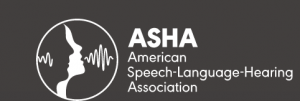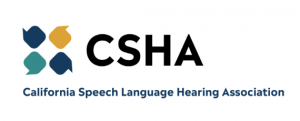Speech Therapy for Head and Neck Cancer Patients
Speech therapy is a vital intervention for people suffering from all sorts of speaking, swallowing, language, and communication disorders. The causes behind such disorders might vary, but experts in the field, such as those at Speak Live Play, are suited to the task of restoring these functions for patients of all ages.
Head and Neck Cancer and the Possible Interventions
Head and neck cancer is the catch-all designation for cancer types that affect the organs and tissues in the vicinity of the head and neck, which include the mouth, throat, larynx, nasal cavity, tonsils, lips, and salivary glands.
The treatment of such cancers will often involve surgery, chemotherapy, radiation therapy, or a combination of these. In many instances, the treatments involved will lead to speech and swallowing difficulties. Swallowing difficulties, known as dysphagia, are a common outcome here, usually due to the weakening of the muscles involved in the action.
How Head and Neck Cancer and Related Treatments Affect Swallowing and Speech
Throat Surgery
This is surgery performed on the throat in order to remove cancerous cell tissue, which may result in difficulties facilitating the passage of food through it. The esophagus is a tube that runs down from the back of your throat all the way to your stomach, and is what food passes through when we swallow. As this is directly adjacent to your air passage, swallowing might result in liquids and solid food getting into your airway, which results in coughing fits and, potentially, choking.
Oral (mouth) Surgery
Surgery performed on the oral region (lips, soft or hard palate, etc.) might have the resulting effects of making it hard to fully contain food and drink in the mouth while ingesting them. Should the gums, jaws, or related tissues be involved, the action of chewing itself might be a problem.
Radiation Therapy
In the United States, most patients who go into hospital with head and neck cancers will undergo radiation therapy. The most common type is known as intensity-modulated radiation therapy, which makes use of high-energy photons. It works by making it impossible for the cancerous cells to replicate, which is how cancers grow and spread. Depending on the severity of cancer and the radiation intensity, various forms of chewing or swallowing difficulties may be experienced by the patient.
Laryngectomy
This is a surgical procedure that involves the removal of the patient’s larynx (voice box) in its entirety due to aggressive cancer spread. It is not always the outcome of laryngeal cancer diagnoses, however, as minor cancers might be treated by the laser excision of the affected vocal cord folds or partial laryngectomies.
In cases of full laryngectomies, patients will be left with a permanent tracheostomy (opening at the base of their throat). This will present a significant challenge to their speech and speaking abilities, but which can be overcome by the use of three important techniques or devices – the electrolarynx, tracheoesophageal puncture, or by learning esophageal speech. In all three instances, extensive work will have to be done under the supervision of a speech and language therapist.
Goals of Speech Therapy for Head and Neck Cancer Patients
The primary problem areas for those living with the outcomes of their medical interventions will usually fall under speech or swallowing difficulties (dysphagia). A professional speech therapist is trained to help in both instances with the goal of restoring the speaking, eating, and drinking functionalities of the patient.
Whatever the reason for your therapy requirements, speech therapists will develop a list of goals for the patient in line with various factors and considerations. The overriding goal here will be to map out reasonable attainments while keeping in mind what is important or most useful to the patient. Some factors for consideration by a speech therapist on the patient’s behalf might include the following:
Likes and dislikes: When thinking about a patient, every speech therapist will want to consider what their particular patient prefers or seeks to avoid. These considerations might be as detailed and varied as to the types of food they like to eat or the types of places they like to visit for entertainment. Nothing is too insignificant to be considered.
Personal goals: Speech therapists will find out from the patient what exactly the patient hopes to achieve as the end results of their therapy efforts. This in-depth consultation not only serves to give the therapist a better idea of what the client is hoping to achieve, but also serves to conceptualize and solidify what their therapy targets are. This serves as a form of motivation that will undoubtedly have a positive effect on the end result.
Occupation: It is a matter of course that the patient as a professional singer and an industrial engineer might require, under similar circumstances, might vary slightly. A singer might focus on vocal range and quality while the engineer might simply need to get their message across. This is not to say that there are different levels of attention received by speech therapy clients, only that the focus might vary depending on what your primary communicational context happens to be. Singers might need to work more intensively and for a longer duration to achieve their former vocal range, while the average client might achieve their objectives much sooner.
Hobbies and Social Life: There is a lot more to life than work, which is why any specialized speech therapy regimen will take what you enjoy doing in your personal time into consideration. Socialites or those who enjoy throwing or attending intimate household gatherings with friends and family might be prescribed a different regimen from professional soccer players who prefer the local pub on their way home from practice. Remember, your therapist will ask you in detail before making this kind of decision, so don’t believe for a minute that these examples cover the options available.
Living situation and typical routine: Some people live alone while others live in households chock full of people. Some people will have help at hand to assist in the administering of the required exercises prescribed by the speech therapist and some will not. All options will be taken into account by the speech therapist, whatever the home dynamics that need to be taken into account. They’ve seen it all, so trust them to know what will work.
As you might expect, these are highly subjective and often personal factors to consider, which is why it is always vitally important that speech therapist work closely with their patient. There are no one-solution-fits-all scenarios here. If this is not the case, the therapist will not be able to come up with a personalized, effective, and results-bearing therapy regimen.



